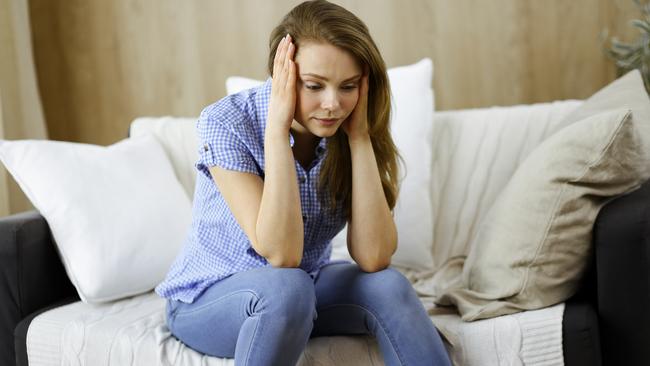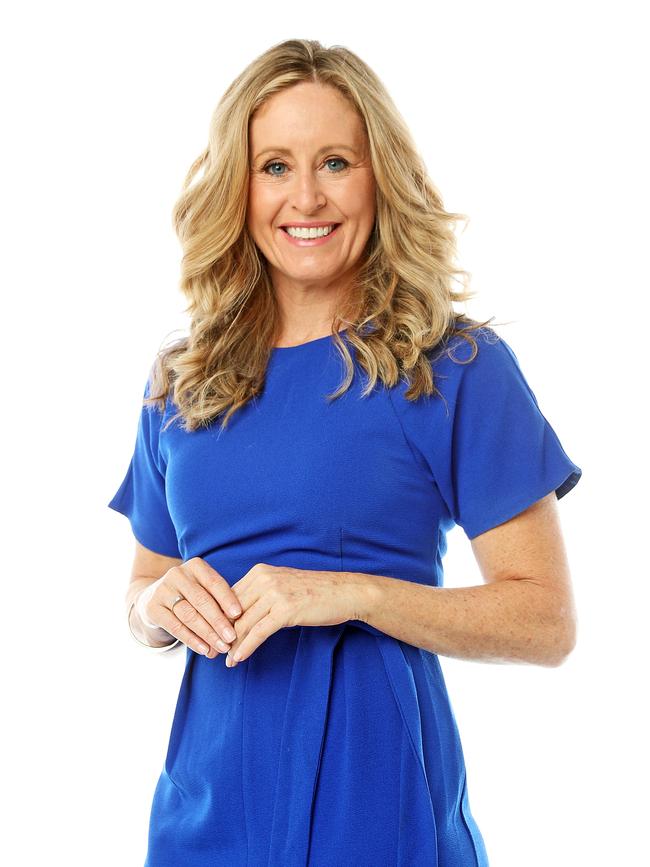Angela Mollard: 3 things to help with moral fatigue brought on by the pandemic
The Covid pandemic and the subsequent lockdowns have led to more of us suffering from moral fatigue. But that could a good thing, Angela Mollard writes.
Lifestyle
Don't miss out on the headlines from Lifestyle. Followed categories will be added to My News.
This week a rubbish truck sped up my street and took out half the jacaranda tree outside my house.
The crack at 6.30am was so loud it woke the neighbours who quickly gathered to survey the huge branch – and what looked like a severed power cable – blocking the road.
After checking the rubbish removalists weren’t injured, I phoned the police. It was unclear if the cable was active and, having been awake when the accident occurred, I was concerned the driver had been driving dangerously fast. Earlier this year a woman was killed by a rubbish truck.
When I mentioned I’d called the police, a neighbour looked at me sharply.
“If the police get involved he’ll lose his job,” she said.
“He won’t get another one in this current climate and who knows what could happen if he takes that stress home to his family.”
I felt like the tree had fallen on me. In a single phone call, I had potentially destroyed a family, according to my neighbour.

Yet what if someone had been walking on the footpath when the rubbish truck had hit the tree? They’d have been crushed. What if the driver had been drinking?
All day I couldn’t shake the weight of the conundrum.
Recounting the story to friends, one piped up: “Oh dear, you’re clearly suffering from moral fatigue.”
She’s right. A side-effect of the pandemic is that we’re all morally exhausted. In 18 months, we’ve gone from a bunch of laconic, Crocodile Dundee-style “she’ll be righters” to angsty, righteous dobbers having to make dozens of decisions a day not just about our choices but everyone else’s.
If analysis paralysis was the condition de jour before the pandemic, then moral fatigue is our current malaise.
I am exhausted from thinking about what is right and wrong, and what behaviours are good and bad.
In a single day I realised I’d considered the following: whether it was safe to use a toilet at a service station; the pros and cons of checking the ripeness of avocados in the supermarket; whether I was sufficiently socially distanced from fellow swimmers after a dip; and whether a scarf would serve as a mask when I forgot to take one into a fruit and veg store.

That’s before I contemplated whether anti-vaxxers were selfishly free-riding on the safeguards taken by the rest of us, how many approve of Annastacia Palaszczuk’s hard border rhetoric, and whether Malcolm Turnbull has a point when he says the nuclear submarine decision is deceitful and costly (he doesn’t; he had his chance to be the boss of things and buggered it up).
It’s not just our domestic considerations which have turned into high-stakes decision making. As someone who has worked with World Vision, I’m alarmed by reports coming out of Africa and the Middle East about the growing famine crisis.
Two years ago this month I was in Kenya with AFL star Nic Naitanui and we saw first-hand how precarious these communities are as they deal with child prostitution, sexual assault and trafficking.
That was before a pandemic and a natural preoccupation with our own lives pushed their plight out of our consciousness. World Vision is currently running a Meal Of Fortune campaign to bring attention to the hunger crisis yet I worry we’re all too morally fatigued to take on anything else.
Never in my lifetime have I thought more and known less.

Likewise, I’ve rarely over-examined my viewpoints as much as I’m doing now – something of a problem when you’re paid to have them.
Even choosing what to have for dinner is a dilemma that finds me in the supermarket, blanketed by ennui then wondering whether I’m less likely to pick up Covid from a checkout operator or the self-serve touchpad.
Fortunately, I’ve learned three things that help with moral fatigue. The first is to focus on pings of happiness – little pleasures that take you through your day like stepping stones.
For me, it’s hearing my daughter singing upstairs, the “zing” from turning the shower to cold before I step out, and a little strawberry patch I pass on my dusk walks.
Watching those tiny berries prosper despite rain and magpies, involves no thought or judgment, just observation.
Secondly, moral fatigue may turn out to be a good thing because it’s making us reflect more on how our actions affect other people.
The pandemic has reminded us how interdependent we are and, while that’s tiring, it’s also an enormous force for good. Think for a moment if contact tracers were tasked with uncovering the links between acts of kindness rather than the virus. There will be a legacy from thinking of the “we” not the “me”.
Finally, we had become too siloed. In the past few years social media has served to reinforce our own thoughts and ideologies whereas the pandemic has stretched us to contemplate ideas beyond our own.
My neighbour and I have different responses to the rubbish truck driver and that’s OK. In time I hope the broken jacaranda tree will serve as a reminder not of moral fatigue but tolerance.
ANGELA LOVES...
TV
Vigil has taken the British police procedural and shot it full of steroids. Gripping drama, top actors and twists every minute.
MOVIE
If you need a laugh, The Upside (Netflix) is arguably even better than 2011 French film The Intouchables on which it’s based.
READERS
I love your emails, especially the one from Robert who told me how he’d moved into a home planted with daffodils. As he described it: “A yard of gold; no small joy.”


